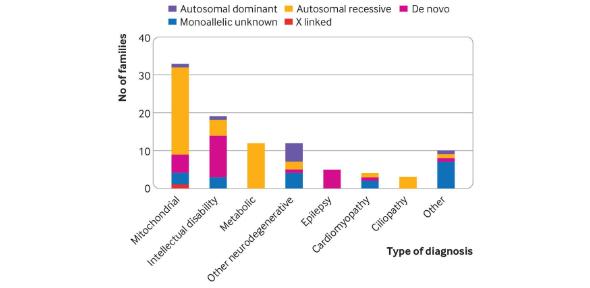
Submitted by Penny Peck on Thu, 04/11/2021 - 15:34
The results of a research study led by Professor Patrick Chinnery, in collaboration with scientists from the MRC MBU, and the Departments of Clinical Neurosciences and Medical Genetics, have been published in the British Medical Journal.
In total, 345 participants – aged 0 to 92 with a median age of 25 years – had their whole genome sequenced. Through different analyses, the researchers found that they could make a definite or probable genetic diagnosis for 98 families (31%). Standard tests, which are often more invasive, failed to reach these diagnoses. Six possible diagnoses (2% of the 98 families) were made. A total of 95 different genes were implicated.
Surprisingly, 62.5% of the diagnoses were actually non-mitochondrial disorders, with some having specific treatments. This happened because so many different diseases resemble mitochondrial disorders, making it very difficult to know which are which.
Professor Chinnery and his colleagues recommend that whole genome sequencing should be offered early and before invasive tests such as a muscle biopsy. All that patients would need to do is have a blood test, meaning that this could be offered across the whole country in an equitable way. People wouldn’t need to travel long distances to multiple appointments, and they would get their diagnosis much faster.
For further details, see University of Cambridge press release.
Publication reference:
KR Schon et al., ‘Use of whole genome sequencing to determine the genetic basis of suspected mitochondrial disorders: a cohort study’, BMJ (2021). DOI: 10.1136/ bmj-2021-066288

